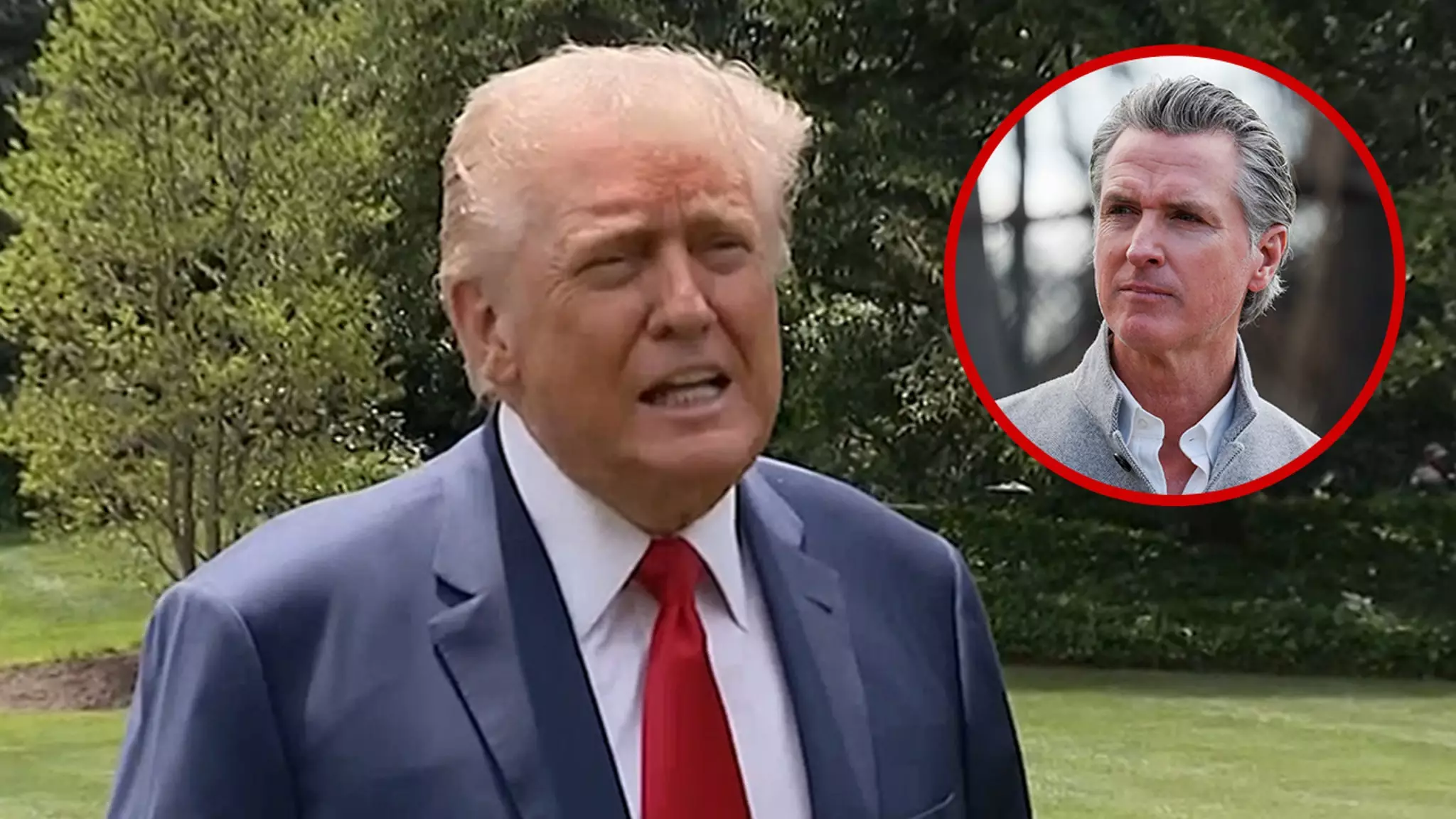In a charged political climate, statements made by President Trump and his Border Czar Tom Homan have sparked intense debates regarding federal authority and state sovereignty. Homan’s threat to arrest California officials, including Governor Gavin Newsom and Los Angeles Mayor Karen Bass, over their opposition to federal immigration policies illuminates the fraught relationship between state and federal governments. The gravity of such threats, particularly in a nation where civil liberties are paramount, raises critical questions about the boundaries of executive power.
A Spotlight on State Law Enforcement Dynamics
The situation escalated over the weekend as protests erupted in response to arrests made by Immigration and Customs Enforcement (ICE) in Los Angeles County. The protests have characterized the current socio-political challenges facing the country. Notably, Homan’s assertion that it is a felony to obstruct law enforcement underscores a perceived urgency to enforce federal immigration laws. However, this stance heavily implies that state leaders, who are acting within their jurisdiction to protect their constituents’ rights, could suddenly find themselves in a criminal battle with federal authorities. This provocation is dangerously disruptive and leads to a slippery slope of politicizing law enforcement.
Political Maneuvering in the Age of Polarization
Newsom’s fiery response encapsulates the defiance that has emerged among state leaders, challenging federal overreach. His retort, essentially inviting arrest as a badge of honor, signals a refusal to acquiesce to what he views as an unjust use of federal power. The exchange caught national attention, further polarizing the public discourse. Trump’s endorsement of Homan’s threats only adds fuel to the fire, reinforcing the narrative that this administration is willing to ignore the delicate balance of power for political gain.
Understanding the Role of Law and Society
This confrontation is emblematic of larger themes in American governance, where civil rights and law enforcement often intersect with political ideologies. The reality is that calling for the arrest of an elected state official for performing what many would deem their lawful duty diminishes the integrity of democratic institutions. The depiction of protesters as “professional agitators” or “insurrectionists” reveals a tendency to dehumanize dissent, which is a deeply concerning trend. Lawful protests are a cornerstone of democracy, and categorizing them as criminal activity is a dangerous rhetoric that threatens the foundational freedoms guaranteed by the Constitution.
A Broader Implication for Democracy
This episode serves as a clarion call across the nation — it interrogates what it means to uphold the principles of democracy amid growing political tensions and a climate of fear. Many citizens, regardless of party affiliation, may feel increasingly anxious about the implications of such threats to arrest state officials. The risking of constitutional rights for political scorekeeping does little to unite a divided populace; rather, it fosters an environment of hostility that furthers alienation. This confrontation reveals not just a clash of governance styles, but an alarming movement that tests the resilience of American ideals. As tensions simmer, the actions and rhetoric from leaders must steer towards the preservation of democracy, not its dismantlement.

